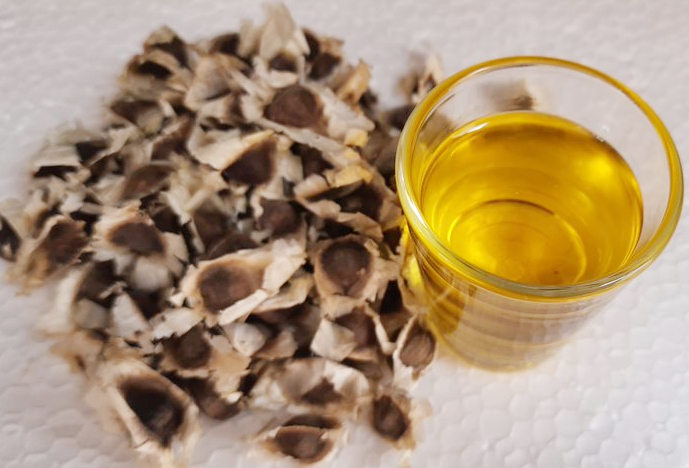What is Cold-pressed extraction method?
Cold-pressed oil extraction is a one of mechanical extraction method that has gained popularity due to its ability to retain the nutritional value,natural flavors of oils and environmental friendly. method of extraction.
Cold-pressed oil extraction involves a mechanical process that extracts oil from seeds or nuts without using excessive heat or chemicals. The seeds or nuts are first cleaned and then crushed, releasing their oil content. The crushed material is then subjected to pressure using a hydraulic press or an expeller to extract the oil. This process is typically carried out at temperatures below 120 degrees Fahrenheit, preserving the natural characteristics of the oil.

- Environmental friendly
- No solvent.
- No chemicals involved
Benefits of Cold-Pressed Oil Extraction
- Retains Nutritional Value: Cold press extraction minimizes heat exposure, helping to preserve the natural nutritional content of oils. This method retains essential fatty acids, vitamins, and antioxidants that may be lost during other extraction processes.
- Enhanced Flavor and Aroma: Cold press extraction maintains the natural flavors and aromas of oils, resulting in a more robust and distinct taste profile. This makes cold-pressed oils highly desirable for culinary applications.
- Chemical-Free Process: Unlike some other extraction methods, cold press extraction does not involve the use of chemicals or solvents. It relies solely on mechanical pressure, making it a healthier and more natural option.
- Higher Quality Product: The gentle extraction process of cold press ensures a higher quality end product. The oils obtained are typically purer and less processed, contributing to their overall quality and nutritional benefits.
- Potential Health Benefits: Cold-pressed oils are often associated with potential health benefits due to their retained nutritional value. These oils can contain beneficial compounds such as antioxidants, polyphenols, and omega-3 fatty acids, which are known to support overall health and well-being.
- Eco-Friendly Method: Cold press extraction is a more environmentally friendly process compared to other extraction techniques that may require harsh chemicals or generate excessive waste. It promotes sustainability and reduces the impact on the environment.
Overall, the advantage of cold press extraction lies in its ability to produce high-quality oils with preserved nutrients, enhanced flavors, and a more sustainable approach to oil production.
One of the key advantages of cold-pressed oil extraction is its ability to preserve the nutritional value of oils. The low temperature and absence of heat help retain essential fatty acids, vitamins, and antioxidants that are otherwise lost in conventional extraction methods. Cold-pressed oils are also known for their distinct flavors and aromas, making them popular among chefs and food enthusiasts. Additionally, since no chemicals or solvents are used in the process, cold-pressed oils are considered healthier and more natural
FAQ COLD PRESSED OILS
Popular Cold-Pressed Oils:
Here are some examples of commonly available cold-pressed oils:
- Olive Oil: Cold-pressed olive oil is one of the most popular and widely used oils. It is known for its distinct flavor, rich aroma, and numerous health benefits. It is a staple in Mediterranean cuisine and is valued for its high content of monounsaturated fats.
- Coconut Oil: Cold-pressed coconut oil is extracted from the meat of mature coconuts. It has a delicate flavor and aroma and is widely used in cooking, baking, and skincare products. Cold-pressed coconut oil is valued for its potential health benefits and medium-chain triglycerides (MCTs).
- Almond Oil: Cold-pressed almond oil is derived from almonds and has a mild, nutty flavor. It is commonly used in culinary preparations, particularly in baking, dressings, and as a finishing oil. Almond oil is also popular in skincare and haircare products due to its moisturizing properties.
- Avocado Oil: Cold-pressed avocado oil is obtained from the flesh of ripe avocados. It has a smooth, buttery texture and a mild, slightly nutty taste. Avocado oil is versatile and can be used for cooking, salad dressings, and as a healthy fat in various dishes.
- Flaxseed Oil: Cold-pressed flaxseed oil is derived from flaxseeds and is known for its high content of omega-3 fatty acids. It has a distinct, nutty flavor and is often used as a nutritional supplement or added to smoothies, salad dressings, or drizzled over cooked dishes.
- Sesame Oil: Cold-pressed sesame oil is derived from sesame seeds and is widely used in Asian cuisines. It has a rich, nutty flavor and aroma and is commonly used for stir-frying, marinades, and dressings. Sesame oil is also valued for its high smoke point.
These are just a few examples of cold-pressed oils available in the market. There are many other varieties, such as sunflower oil, grapeseed oil, and walnut oil, each with its unique flavors, nutritional profiles, and culinary applications.
Various types of oils can be extracted through the cold-pressing method, including olive oil, coconut oil, almond oil, and avocado oil. These oils are renowned for their unique flavors and nutritional profiles. Cold-pressed olive oil, for instance, is prized for its rich taste and high levels of monounsaturated fats. Coconut oil extracted through this method is preferred for its delicate aroma and potential health benefits.
Cold-pressed oil extraction offers a healthier and more natural approach to obtaining oils. With its ability to retain nutritional value and distinct flavors, it has become a favored choice for those seeking high-quality oils that enhance the taste and nutrition of their dishes.
